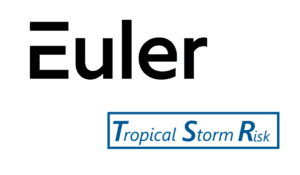Everything I’ve learned about supplemental benefits
Since my mother in law came to live with us after spinal fusion surgery last month, one of the things I have been trying to learn more about is how to maximize the benefits offered through her Medicare Advantage plan to help relieve some of the financial stress on my family.
Supplemental benefits in Medicare Advantage plans refer to the additional health and wellness benefits that Medicare plans can offer beyond the services covered by traditional Medicare. I found this article by Milliman that was really helpful, since most of my Googling yielded only results tied to specific plans rather than an overall education about what they are and how to use them.I read the article and wrote this summary so you don’t have to read it!
Nearly all Medicare Advantage plans (99%) offer some type of supplemental benefits beyond what is covered by traditional Medicare.
Dental, vision, hearing, health/wellness, and transportation benefits are the most commonly offered supplemental benefits, included in over 80% of plans
The prevalence of non-health supplemental benefits like meal delivery, pest control, and in-home support services is increasing, offered by 11% of plans in 2023.
Supplemental benefit prevalence is higher in Medicare Advantage Prescription Drug (MAPD) plans compared to MA-only plans (good to know!).
Regionally, a higher percentage of plans in the Midwest and South offer meal benefits compared to other areas of the country.
From 2022 to 2023, the average number of supplemental benefits per plan remained steady at around 14. But the value of those benefits in terms of allowed amounts increased.
Here are some tips on how to use Medicare Advantage supplemental benefits:
Either ask your plan or your broker to explain the supplemental benefits in detail. Have them walk through how each one works, limitations, and how to file claims. As caregivers, we need to understand the specifics.
Go through the plan materials with your loved one and highlight key information. Make notes about things like network providers, prior authorizations needed, and important dates when benefits reset or enrollments end.
Help your loved one log into their online account and together you can check usage of benefits like dental credits or transportation rides. Review any claims submitted.
Save receipts. Many plans require you submit receipts or claims forms to be reimbursed for supplemental benefit costs. If your loved one is uncomfortable filing claims or following procedures, as caregivers we can take on the administrative work so they can use the services.
Take your loved one to their wellness exams like yearly dental cleanings to maximize prevention.With benefits like meal delivery, help select healthy meal choices if needed or alternate meals with your own homemade ones.
Note any reimbursement limits if your loved one’s supplemental benefits include things like eyewear or OTC (over the counter) allowances.
Use “use it or lose it” benefits like eyewear allowances each year, since unused amounts don’t roll over.
Use the transportation benefit to help you bring your loved one to key appointments.Make a calendar with key dates for open enrollment, benefit usage deadlines, or wellness exam reminders.
Staying organized and planning ahead is key to accessing the extra coverage and savings the Medicare Advantage supplemental benefits. For us, the transportation benefit, the OTC card, and the meal delivery following surgery were lifesavers.I would love any additional pointers that any of you out there may have!


